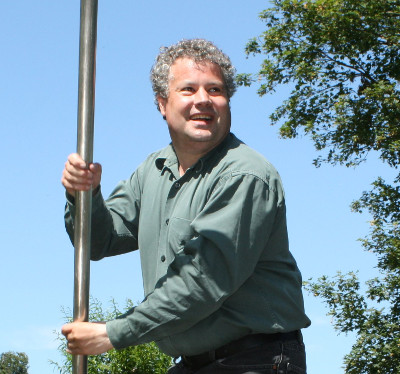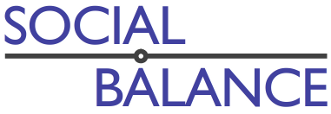Dr Justin Larner MCMI

Researcher, designer, manager and consultant.
My Early Years
Growing up in Yorkshire, I was fascinated with electronics and machinery, taking things apart to see how they worked. My interest in electronics deepened at college, where I learned about the fundamentals of physics and the new world of computing. On leaving college in the late 80s, I worked in IT and administration in Yorkshire for several years in the early 1990s. One project was to create a computerised catalogue for a transport museum, I enjoyed sorting out all the artefacts, understanding their significance and making sense out of chaos. During this period, I also worked in publishing, helped small businesses get to grips with computer technology and served as a charity board member, improved the environment at Groundwork and typed in thousands of barcodes for a fabric retailer.
A Personal Transformation
However, during my recovery from a serious viral illness, I re-thought my career direction, moving into community development in the late 1990s, included facilitating community groups in the North West of England to create new buildings that improved lives in their neighbourhoods at Community Regeneration. From 2000 to 2010, I was Development Manager of Mind in Manchester, taking a social approach to tackling mental health issues. During that time, I created the Mind Mentors project, where we trained volunteers who had recovered from severe and enduring mental ill-health to mentor someone who wasn't there yet. I sought to learn more about how to fulfil my management role, taking an NVQ Level 4 in 2005 and then joining the Chartered Institute of Management, which helped in my work in 2005-6 helping Mind in Salford rebuild itself after a difficult period. Overall, I raised over £1M of funding for services and projects during this time from statutory sources, charitable trusts and the National Lottery.
What's Lurking Under the Surface
Participating in the Cassel Hospital Management and Leadership in Mental Health Services series of workshops on unconscious mental processes was a revelation, learning about the hidden narratives lurking under the surface in organisations. I learned that these problems cannot be dealt with until they are brought to the light, which underpins my research into organisational governance, stakeholder involvement and business models. However, my experience in Salford showed that once problems have been brought to the light, they can be positively transformed. I wanted to know more about how organisations worked, so I took a part-time MA in Social Enterprise Management course at Liverpool John Moores University from 2008-2010. During this course, I learned about stakeholder involvement in social enterprise governance. Reflecting further on this experience, and the publication of my paper "Beyond Box-Ticking" based on my MA studies, led me to wish to explore stakeholder issues further.
New Forms of Organisation
Undertaking research for Manchester University in 2011 on the wider applicability of open source beyond software then led to me securing a place on the EPSRC funded Highwire doctoral programme at Lancaster University from 2012-2019. In this programme, I explored how open source could inform business models of value creation and capture, eventually focusing on the role of entrepreneur as system architect. I have also explored how guild-like and trade union-like structures can inspire sustainable networks of organisations in the collaborative economy with researchers at KTH Royal Institute of Technology in Sweden from 2016. This work has focused on developing the Platform Review Alliance Board model for the commissioning and review of workplace software. My research has revealed a view of entrepreneurship as narrative, where entrepreneurs create narratives of change with their stakeholders, which then articulated as a business model and organisational structure. By working with multiple entrepreneurs, I can abstract a portfolio of business models as designs that are more widely applicable. One of these abstracted business models is the Open Source Platform Federation, where there is a balance of power between the interests of the business founder and their stakeholders. In my current research, I'm looking to answer the question "How can an entrepreneur's life story and aspirations for the future be transformed into a business model with their stakeholders?".
